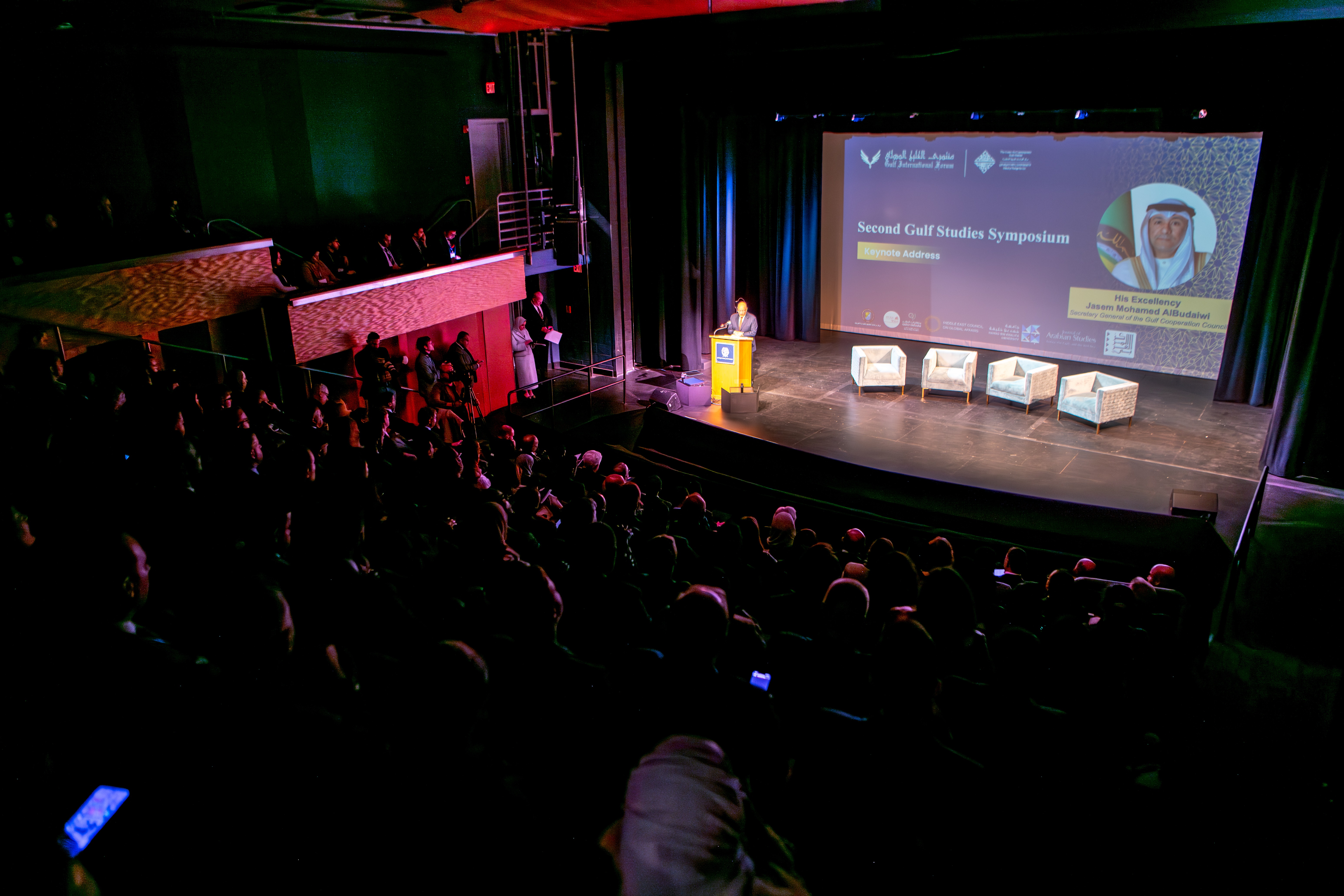Secretariat General - Washington, D.C.
His Excellency Mr Jasem Mohamed Albudaiwi, Secretary General of the Gulf Cooperation Council (GCC), pointed out that the American-Gulf partnership has lasted for more than four decades, stressing that the liberation of Kuwait in 1991 was a pivotal moment that underscored the clarity of principles in our alliance and the steadfast commitment of the United States to international legitimacy.
This was stated during his keynote speech at Georgetown University at the opening ceremony of the second edition of the Gulf Studies Forum, organised by the university in collaboration with the Gulf International Forum and the Centre for Contemporary Arab Studies, attended by several U.S. administration officials, members of Congress, think tank representatives, and university faculty and students, on Thursday, April 10, 2025, in the U.S. capital, Washington.
At the beginning of his speech, he addressed the economic relations and mutual prosperity between the GCC countries and the United States, explaining that trade between the two sides exceeded $90 billion in 2023.
He highlighted that the Council's exports contribute to the stability of global energy markets and supply chains. He added that Gulf investments in the United States are deep and diverse, while American companies are expanding in Gulf markets, indicating that the economic relations between both sides are dynamic and growing.
His Excellency also mentioned that there are currently over 37,000 students from the GCC countries in American universities, stating that these young individuals are not only acquiring knowledge but also building lasting bridges between our communities.
He noted that the GCC has become a model of integration, resilience, and future leadership, with a population exceeding 57 million, nearly half of whom are under the age of thirty, making it a young and ambitious region poised for transformation.
"The region's GDP was approximately $2.1 trillion in 2023, with estimates suggesting it could reach $6 trillion by 2050," he said, pointing out: "Sovereign wealth funds manage over $3.2 trillion—about one-third of the global total—while our foreign reserves exceed $700 billion,"
He stressed that: "Despite our global leadership in oil and gas, our vision extends beyond that, as our countries invest in clean energy, artificial intelligence, digital economies, and space exploration. Our diversification strategies are ambitious, and our global aspirations and commitment to long-term sustainability are unwavering,"
On the political front, he addressed several issues in the Middle East, including the humanitarian crisis in Gaza, instability in Syria, Lebanon, and Yemen, and the broader Horn of Africa, including Sudan, Libya, and Somalia. He affirmed that the GCC plays a role in enhancing security and stability, building peace, as well as providing humanitarian and relief assistance, stating that the Council not only secures its region but also contributes to shaping global diplomacy.
He also reviewed the national visions of the GCC countries, indicating that they are not merely documents but real blueprints for economic diversification, technological leadership, and social progress to attract global talent, enhance entrepreneurship, and open new horizons.
He emphasised that: "We see the United States not only as an ally but as a key partner in this transformation together. We can lead in clean energy, advanced technology, digital infrastructure, and sustainable development,"
During his speech, he reaffirmed the GCC countries' ongoing and steadfast commitment, at the highest levels of leadership, to enhancing cooperation with the United States in bilateral and multilateral relations, in government and the private sector, on strategic and humanitarian issues.
He underscored that the partnership between the GCC countries and the United States is not merely about agreements, but rather a relationship built on values, enriched by experiences, and guided by a common goal.


